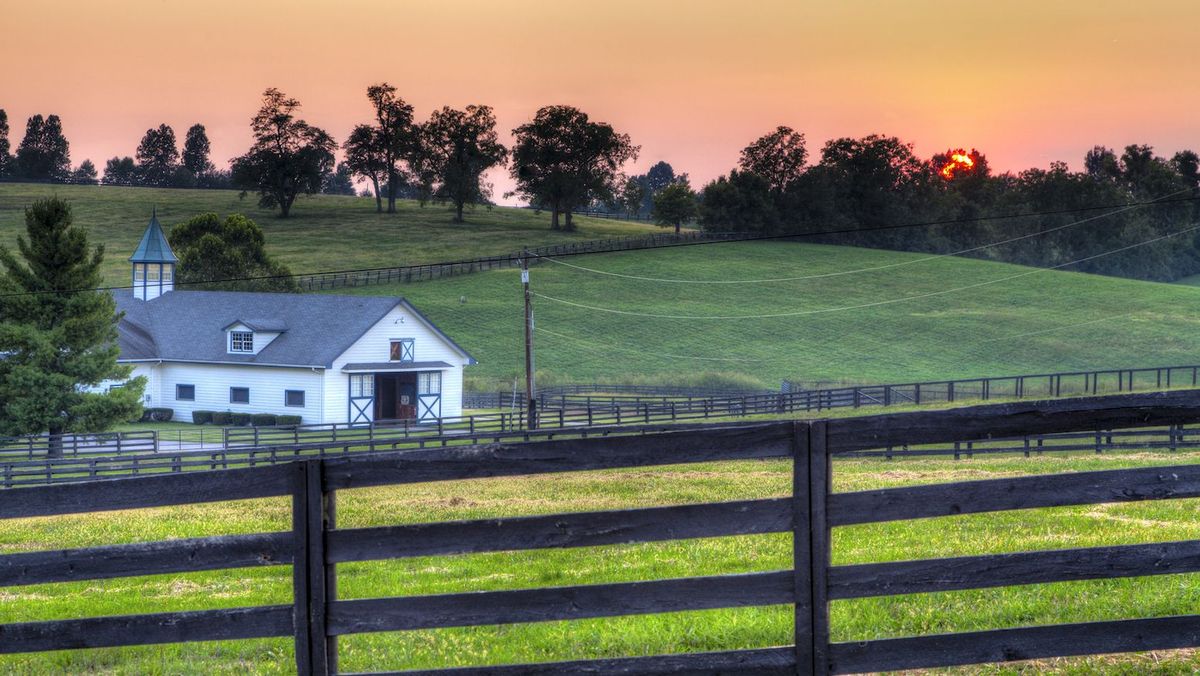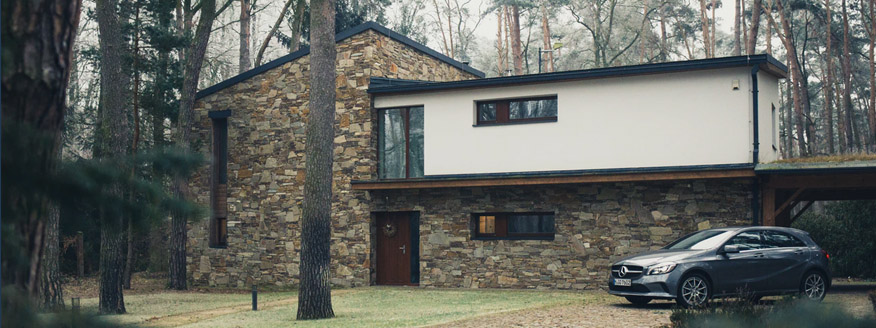


The Chicotsky Real Estate Group is affiliated with the number one luxury brand in the world, Briggs Freeman Sotheby’s International Realty. Being associated with Sotheby’s International Realty allows for access to an immediate network of over 800 worldwide offices to draw upon. We sell all types of real estate: residential, land and ranch, as well as commercial. The Chicotsky family has been in Fort Worth for over 100 years and has a wide array of contacts to rely on in order to help you with your real estate needs.
David Chicotsky and Michaela Chicotsky are husband and wife owners of the Chicotsky Real Estate Group and were personally hired by the CEO of Briggs Freeman Sotheby’s International Realty, Robbie Briggs. The group specializes in offering unparalleled service by being honest with clients, doing as much due diligence as possible, working on the client’s time frame not the agent’s, being responsive, aiding in the negotiations needed to buy and sell a home or property, manage the transaction towards closing, and ultimately adding value to our clients.

Chicotsky Real Estate Group at Briggs Freeman Sotheby's International Realty

Whether it’s a townhome, duplex, condo, multi-family or single family residence – the Chicotsky Real Estate Group is here to help. Spanning the greater Dallas-Fort Worth area, we pride ourselves in taking a hands-on approach to buying and selling homes. When listing a home, we start with a complete walk-through to determine if there are any foreseeable objections buyers will have and we come up with solutions to remedy these issues. All of our listings feature professional photography, whether that’s proprietary photography options such as Matterport (via Briggs Freeman Sotheby’s), standard photography, aerial photography or drone video footage. It is said that over 95% of all potential buyers look online at the photos of a home for sale before deciding to tour a property. We create a pre-marketing rollout of the listing through social media and our inhouse Sotheby’s International Realty network.
Along with selling homes, we often work with buyers. In fact, at Briggs Freeman Sotheby’s we’re bringing 38% of our own buyers to our own listings. There is no limit to the diversity of buyers we work with; first time home buyers, empty nesters, retirees, sale for an estate or representing investors. Whether you’re buying or selling a home, you’ll need agents that know the lay of the land, neighborhood by neighborhood.

Texas land and ranch properties are renowned the world over. Whether it’s hundreds or thousands of acres of land for a ranch or horse property, or if it’s simply enough acreage to have a home on it outside of the city – we’ve got you covered. We work with buyers seeking gated ranchette communities such as Sierra la Rana in West Texas, as well as buyers of horse properties around D/FW such as Silverado on the Brazos between Granbury and Weatherford. The Chicotsky Real Estate Group works hand-in-glove with prominent title companies specializing in the intricacies of land and ranch.
Listing a piece of land or ranch is as easy as arranging a tour with one of our real estate experts, looking over the comps and letting the Chicotsky Real Estate Group go to work crafting a marketing strategy that will get as many eyeballs as possible on your property. Our company has a direct-channel pipeline for advertising directly to the roughly 18,000 real estate agents in and around D/FW. The primary focus of our marketing efforts revolves around a call to action; getting as many agents as possible to send your property to their clients. Land and ranch listings typically have a longer ‘days on market’ per listing when compared to selling residential real estate, all the more reason to choose a real estate group that believes in aggressively marketing your property.

The Chicotsky Real Estate Group is proud to have a long history of commercial real estate ownership, having built the first strip center in Fort Worth. That strip center is still family-owned and houses Chicotsky’s Liquor Store, the oldest liquor store in Texas. David Chicotsky, owner of the Chicotsky Real Estate Group grew up looking over tenant leases and has a foundational understanding of what’s needed to represent both buyers and sellers of commercial property.
Understanding the ramifications of certain components of leases allows for assisting tenants as well as landlords structure leases. Having seen countless lease negotiations from the side of landlord, it allows for a more expansive view of how a tenant should be represented.

Say “Texas,” and immediately a few perceptions come to mind. One of those images is of wide, open spaces. Our state is known for its expansive ranches and oil fields. Just look to Fort Worth's nickname as “Cowtown.” Our roots are in the cattle industry, and cattle need ample space to roam to thrive.
So it's no surprise there is a lot of interest in land and ranch ownership in the Fort Worth area. Whether you're dreaming of owning a farm, looking for a place to get away from it all, or seeking the perfect hunting property, the Fort Worth area has plenty of opportunities to snap up land. As of drafting this article, seventeen land and ranch properties in the Fort Worth area were listed for sale according to data from LoopNet.
As our population continues growing and infrastructure demands change, so does the state of rural properties. Understanding what’s happening in land and ranch ownership now and the potential future trends help you make informed decisions before purchasing or selling this type of real estate.
The American Farmland Trust (AFT) estimates that 370 million acres of agricultural land will change hands in the continental United States by 2034. They've taken a look at trends in land and ranch transactions to predict what owners and operators can expect in the coming years.
According to Texas Land Trends, “over the next decade, Texas will experience the largest intergenerational land transfer and potential change in land use to date.”
Why? An aging rural landowner is poised to transfer ownership of the landholdings.
What this signals is the potential for more land coming on the market over the next two decades as the landowners and operators decide to retire or downsize their holdings.
Most farmland transfers are typically private transactions that change hands as a gift, will, or trust, says the AFT. Around 14 percent of land is sold between family members. Overall, this leaves around 25 percent of land and ranch properties being sold on the open market, or less than one perfect of all United States agricultural land.
This demonstrates that finding land and ranch properties is more challenging, but these properties do exist and are listed on the market. It just may take more time to find the right deal for buyers looking on the open market for these properties.
Since Texas has significant agricultural and rural land available, our state has more opportunities for people to purchase land and ranch properties. Texas Farm Bureau says forests, farms, and ranches make up 83 percent, or 142 million acres, of our state.
However, one issue Texas faces is the fragment sensation of agricultural properties as a result of our rapid population growth.
“About 65 percent of the new growth occurs in 10 counties—counties that encompass Dallas-Fort Worth, Houston, Austin, San Antonio, the Rio Grande Valley and El Paso. So those are the primary regions of growth,” Dr. Roel Lopez said in an interview with the Texas Farm Bureau Radio Network.
Drive around Fort Worth, and you’ll see farms abutting suburban developments. For another view, see the urban growth map from Texas Land Trends.
That doesn’t mean interest in land and ranch ownership is waning. There is a growing movement among younger owners interested in getting back to our agricultural roots. The trade is more people are becoming small-scale owner-operators of farms and ranches. The Texas Farm Bureau defines a small farm or ranch as a property of 100 or fewer acres, which has been an active producer of commodities for fewer than five years.
If you are considering buying rural property with the intent of starting a farm or ranch, Texas has a small farm and ranch advocacy group with resources to help small-scale operations get off the ground.
The latest real estate marketing techniques are exposing ranch properties to more potential buyers than ever before. This is excellent news for land and ranch sellers.
One trend is an increase in auctioning land and ranch properties. The general public tends to associate auctions with distressed properties, but for land and ranch properties selling in a high-demand market could work in the owner’s favor.
Brent Graves of Alliance Auction & Realty said in a press release, “The auction method of marketing allows us to offer large tracts in smaller pieces or any combination which allows more participation from small, medium, and large property buyers. It truly is the friendliest way to buy and sell land.”
The company gave the example of Flattop Ranch, a 4,300-acre property historically used as a cattle ranch, that they broke into four different tracts from 538 acres to 1,620 acres. The multi-parcel auction was intended to widen the buyer pool and potentially help increase the bids from buyers seeking the entire ranch.
Alliance Auction & Realty coordinator Mandi Blackwell said sellers like the chance to bring more buyers to the auction competing for ownership.
The auction method gives sellers more control of the process, such as the terms and conditions of the sale and the closing date.
For buyers, since the multi-parcel method breaks up larger tracts of land, it’s another way of making land and ranch ownership accessible to those who may not want or can’t afford a thousand-acre or larger parcel.
Traditionally, land and ranch buyers have been farmers, up to 70-80 percent according to one source. But the trends published from Agri-Pulse are showing that the number of farmers buying land is likely to decline.
The big shift has been more non-farmers owning the land and renting the acreage. Experts say that this will be more common among midsize and large farm operators.
It's no secret that the average age of the American farmer is steadily increasing as fewer people choose the lifestyle. Combined with land’s tendency towards lifelong ownership and its tendency to change hands within the family, and it's harder for young and new farmers to buy agricultural land.
Non-owner-operators own a substantial share of United States farmland. The expectation is for this trend to continue. Randy Dickhut of Farmers National told Agri-Pulse that there are more investment funds, like venture capital and pension funds, interested in buying farmland. In July 2019, Forbes profiled the increased interest from high-net-worth buyers, pension funds, and farm investing funds. Their reasons? Agricultural land has strong historical investment returns, asset stability, and portfolio diversification. Simply put: people need to eat.
Another ownership trend is the increased number of women opening and operating farms and ranches. A “2014 ERS survey says 37 percent of non-operator landlords are women, and they own 46 percent of the roughly 283 million total rented acres or about 130 million acres.” (Source)
Overall data on women’s ownership is lacking, but in Texas, 85 percent of farm landowners are men. Women have been steadily increasing their presence as primary operators.
Some surveys indicate a high number of women inherited the properties and that they tend to lease the farmland. The average age of a female operator was 63 years old, compared to the Texas average age of 60.
Another variable in Texas’ land and ranch properties is landowner residence. Absentee landowners are people who primarily live in urban areas, like Fort Worth, and use their land and ranch property for recreation, such as hunting, or financial purposes, like leasing for farming. Around 5,000 operators fell into this range from 1997 to 2012.
Meanwhile, more people are choosing to move to their land. Around 40,000 new resident landowners were established during this same period.
The majority of Texas landowners host small operations under 500 acres. Small land ownership has had the largest growth. One concern is “as property size decreases, the ability to operate the land as a primary source of income for traditional farming, ranching, and forestry uses also decreases.” Source
This means landowners either need multiple streams of income–think wedding barns or hunting leases–but also a move to buying more land to increase farm development. Nationally, the average size of a farm has been steadily growing since the 1930s. Large operations are buying up small-to-midsize tracts of land. One prediction in AgriPulse was by 2040, there will be less than 100,000 production farms and they will be responsible for 75 percent of the agricultural output.
Another factor with land consolidation is changing the use of the property, such as from farm to residential development. One source claims the nation loses two million acres of agricultural land a year to development across the country.
Another aspect of the aging farmer population and future land availability is how owners plan to provide for their retirement. A typical farmer has invested in their land in their operation throughout the years. Naturally, they turn to the same land to fund their retirement.
Landowners can put their property on the market and hope to attract a buyer. Some break more extensive tracts into smaller parcels, allowing them to keep some of the land in the family while still creating an income for their future.
The thing is, it’s not always in the farmer’s financial interest to sell the land because they will owe steep capital gains taxes. It makes sense to these farmers to put their property into a trust or hold onto it and rent to a farm operator.
Placing the property into a family corporation or trust, or assigning the lands through their wills, allows them to avoid tax consequences of selling or gifting the property while they are still alive.
When a landowner does decide to sell outside the family, they face the challenge of:
Farming tends to be a legacy occupation. There's a strong desire to keep things within the family. There's understandability sentimentality attached to the land and ranch, especially if it’s been held for generations.
Congress has incentivized people to retain farmland by making changes in federal estate and gift taxes.
Some industry experts believe these changes, combined with sentimental reasons, means more land and ranch properties will be owned by a trust, estates, or corporations instead of individuals or farming couples. Says one source, “The tally for those entities has risen steadily, virtually doubling from 72,063 in 1982 to 142,370 in 2012, while the total number of farms declined.”
As more properties become owned by non-operators, there's going to be an increased need for land and ranch management services.
Owning a slice of rolling Texas farmland is a wonderful aspiration, but the reality is ranch management is an involved process. New landowners may not have the experience or knowledge about agricultural operations and management. Some owners intend from the beginning to be an absentee owner or to use the property for financial gain by leasing it to farm operators.
If owning a farm or ranch sounds interests you, but the management aspects do not, there are services that help with the day-to-day management of a ranch or farm. This type of operation is more typical in the Midwest, but it is an option for Texas ranch owners. Using overseer and/or manager is intended to enhance the property and the owner’s enjoyment of visiting and owning the operation.
It is hard work to balance the requirements of livestock, farming operations, and wildlife on expansive land properties. The land overseers do tasks like resource management, provide periodic reports, and ensure the operation is meeting goals.
Again, this is a trend more common out West but is still applicable to Texas and ranch properties. Group buyers or shared ranch ownerships could be like-minded hunters and anglers, family groups, or professional groups.
These groups pool their resources to find land that suits their needs, whether it’s for hunting or creating a retreat. It allows people to purchase properties that might have otherwise been out of reach. Their combined resources allow for updates and post-purchase improvements.
The shared ranch ownership is a way to enter ranch investment with many different types of ranch properties.
Group purchases can be complicated, which is why it’s best to consult with law and tax professionals well before searching for land and ranch properties, establishing a business, or writing an operating agreement.
When you step back at look at the overarching trends, we have an aging farmer owner population poised to rethink their ownership strategy. Buyers are diversifying, and farms are being viewed as investment properties. Who and how land is owned is changing. The end result is buying land and ranch properties becomes more competitive.
The best part of owning a Texas land and ranch property is its diversity. There are plenty of opportunities to enter the market. Whether you just want to own land for hunting or recreation, or start your own small scale cattle ranch, there's lots of opportunity in the region. The Texas landowners we work with have a real pride of ownership. Ask any owner, and they will happily share the value they receive from owning and operating a Texas ranch.
The land and ranch properties around Fort Worth are gifted with Texas’ iconic rolling hills. Our location keeps owners close to a thriving metropolitan area and its amenities, like the International Airport and shopping. Even if it's nice to own a ranch to get away from it all, most people still appreciate our modern infrastructure and amenities.
When you're seeking your dream Texan ranch property, work with the experts. Chicotsky Real Estate Group has been working with Fort Worth land sellers and buyers for years. Like many local landowners, our roots in the area run deep. We are proud to support Fort Worth’s ranch legacy.
Looking to buy something new? Looking to sell at a great time?
Call us now to discuss getting the best deal possible with the
fitnest representation in Fort Worth.
